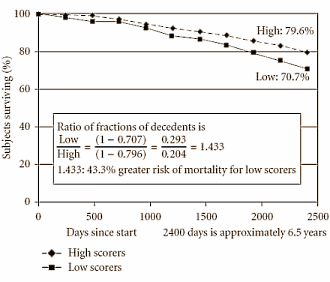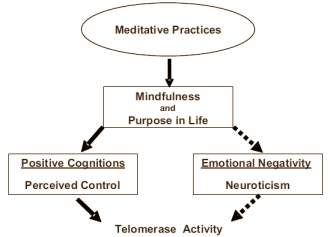|
Definition: "An ergogenic aid is any substance or phenomenon that enhances performance "
|
|
||||||||
27.11.2011 |
|
|
Belief in a just world extends life expectancy
Study
The Future Time Perspective means that the researchers asked the subjects if they thought they still had a long life ahead. Future Self-Continuity is a little more complex. The researchers wanted to know whether the subjects conceived of their future self as worthwhile and whether they recognised their present selves in their future selves.
Believing that you'll still be around in, say, ten years' time, and believing that you'll still be completely healthy then and just as pleasant as you are now is one facet of believing in a just world, according to the researchers.
Results
This meant that among the subjects with strong belief in a just world the chance of dying was 43.3 percent lower than among the subjects who had little belief in a just world.
Similar analyses showed that a strong Future Time Perspective and a strong degree of Future Self-Continuity reduced the likelihood of dying by 36 and 26.6 percent respectively.
Distrust of others was related to a higher chance of dying. The likelihood of dying of the subjects who mistrusted those around them was 27.6 percent lower than that of subjects who had a more positive attitude towards the people around them.
Conclusion
"Interventions aimed at strengthening individuals' beliefs in a just world at an earlier age, and encouraging future-self continuity in the earlier adulthood years, might motivate people to care more for their potential person in the later years, and conceivably keep people healthier longer and thereby reduce risk of mortality", they write.
Source:
More: Archives:
|
|
||||||||||||||||






